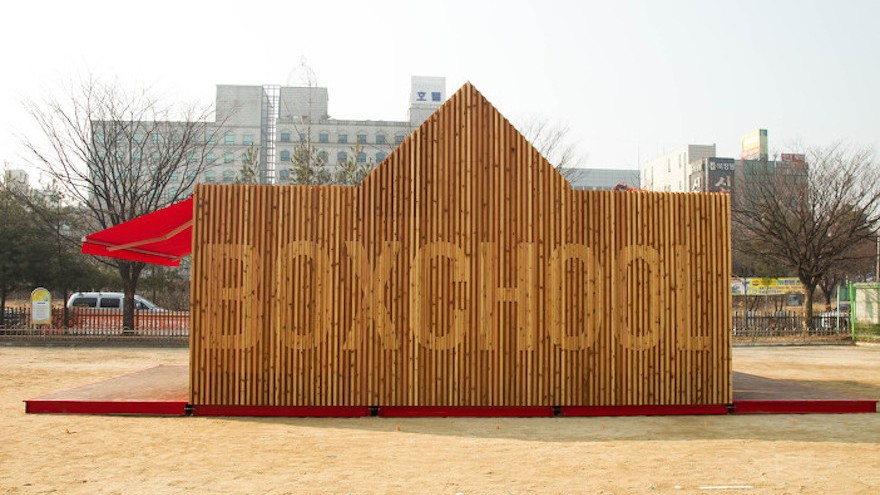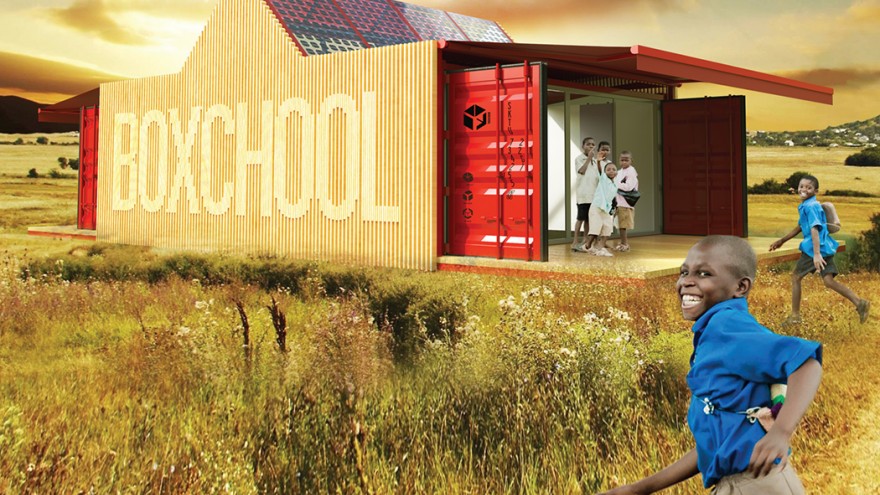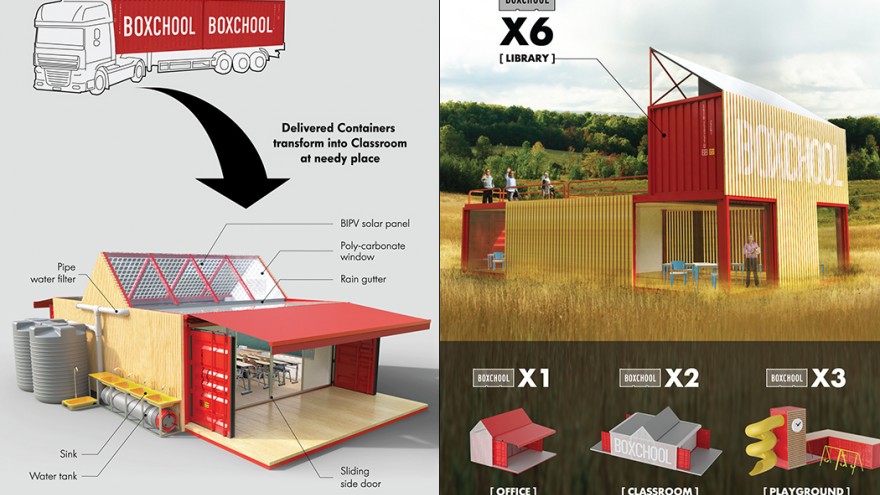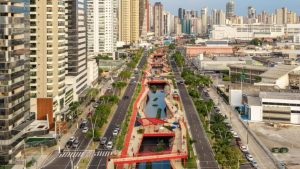Recipient of the Red Dot Award for Design Concept, Boxchool is a modular container school developed for remote rural areas with no access to educational facilities. Designers at the IDIM Design Laboratory in Korea transformed shipping containers into safe classroom environments by adding modular components to the interior and exterior while using the container as a basic framework.
Driven by sustainability, the Boxchool runs on a self-sufficient resource system, which means that the school can operate anywhere, including isolated areas. Fourteen solar panels on the roof produce enough energy to power one laptop, a projector, eight LED lights, and ten tablet PCs for a full, 6-hour school day.
Water is generated through a rainwater collection system that filters and stores clean, drinking water in on-site tanks.
The modular design of the units allows for different types of educational facilities. This is made possible by variations in the amount of containers and how they are arranged. Two Boxchool units can create one large, fully equipped classroom for 24 children while three units can make a playground or clubhouse. A six-unit model can build a large library, and a series of two unit classrooms can create an entire school.
Each Boxchool unit is made up of a recycled shipping container, fitted with solar panels, gutters, pipes, windows, water tanks, furniture and panelling. A simple twist lock system secures each part onto the container so that everything can be assembled quickly on site, lowering production cost and providing the option to build various configurations.







